
Pallium for Ukraine was created by Ukrainian Hanna Poliak, who lives in Poland. During a full-scale war, her initiative helps seriously ill children from Ukraine to evacuate abroad and supports them with medicines, consumables, and rehabilitation tools. Most importantly, it provides a safe place to live.
Although Hanna Poliak says she does little things, the families who managed to escape the shelling are infinitely grateful. Their children, who often have complex diseases, remain in comfort and with everything they need for life.
Rubryka will tell about people united around Ukrainian children, problems faced by families during the evacuation, and life abroad.
"Liosha can't breathe on his own"
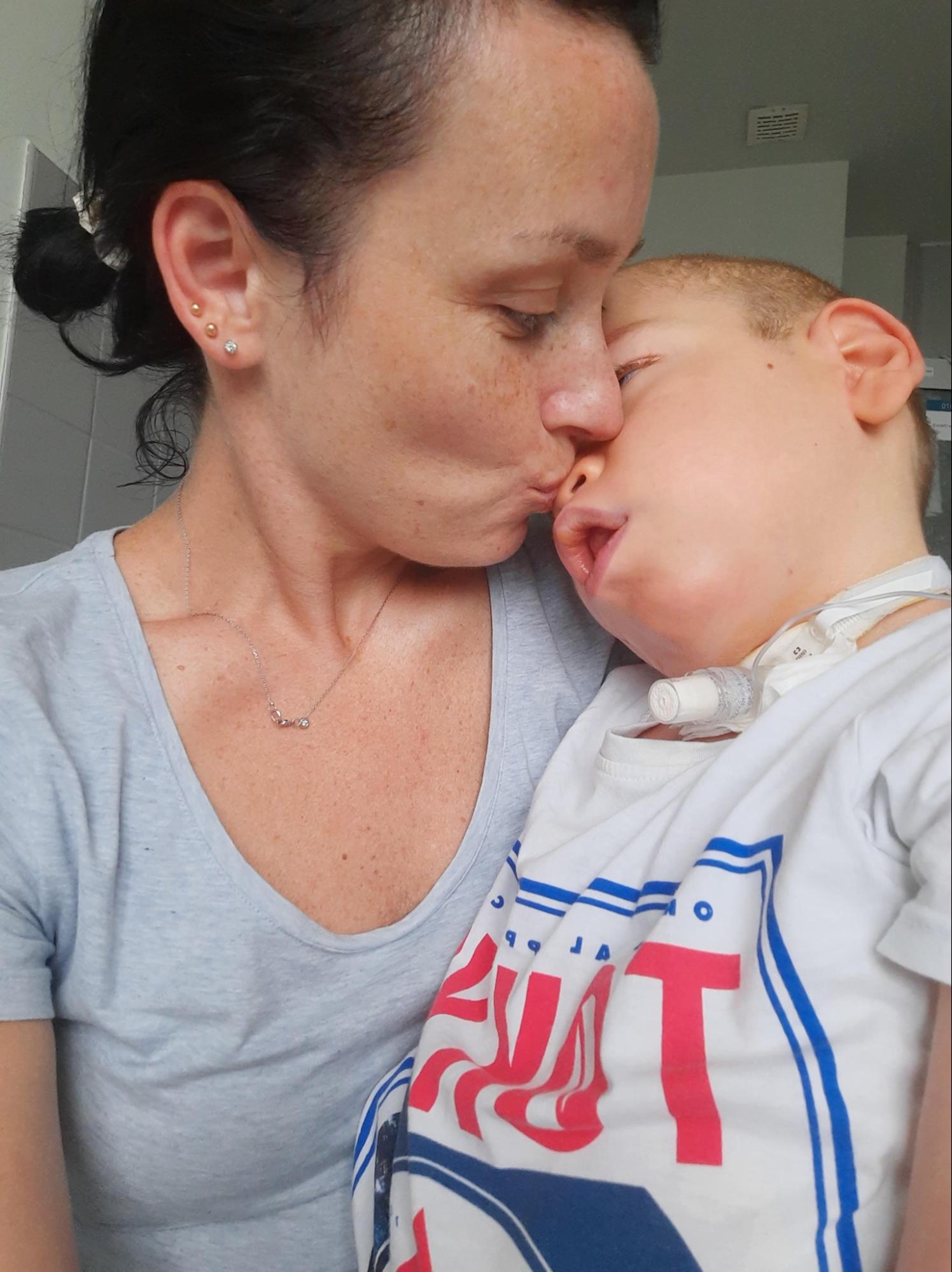
The second child—son Liosha—was born in the Hlushenok family at 28 weeks of pregnancy. The baby was tiny, weighing one kilogram. The baby spent four months in the hospital. When they discharged him, the boy had already gained weight, was holding his head, eating by himself, and smiling at mother Katya.
Everything seemed fine, but suddenly apnea began; the baby was gasping for breath and turning blue. The doctors couldn't immediately find the reason. Doctors said there may have been a link to premature birth.
"I did not doubt that we would cure the child. I lived in rose-colored glasses for a very long time, two or three years. I didn't give up and looked for a way out," says Kateryna Hlushenok, Liosha's mother.
After several years of visiting doctors, they went to Germany to find the exact diagnosis. The doctors there hinted that the problem might be in genetics. Kateryna didn't want to believe for a long time that it could be a gene deviation, but they did testing anyway.
The results came. The document had the obscure name Infantile Epileptic Encephalopathy Type 18, a rare genetic mutation. The parents received this diagnosis just in time for Christmas 2018. Liosha was barely three years old.
"I dropped out of life for a while and didn't exist for half a year. I had panic attacks, meltdowns, and tears, looking at Liosha," only after some time was Katia able to regain her senses. She understood that her child's life entirely depended on her. The baby needed care and attention 24 hours a day, seven days a week. Even now, when we are talking through Facebook, Katia is next to her son: she is preparing suction in the child's chest.
"I have a severe-case child. He has a tracheostomy and a gastrostomy. Liosha can't breathe on his own, doesn't eat on his own, doesn't roll over."
Life with a seriously ill child after February 24
"If something happens, you have to save yourself"
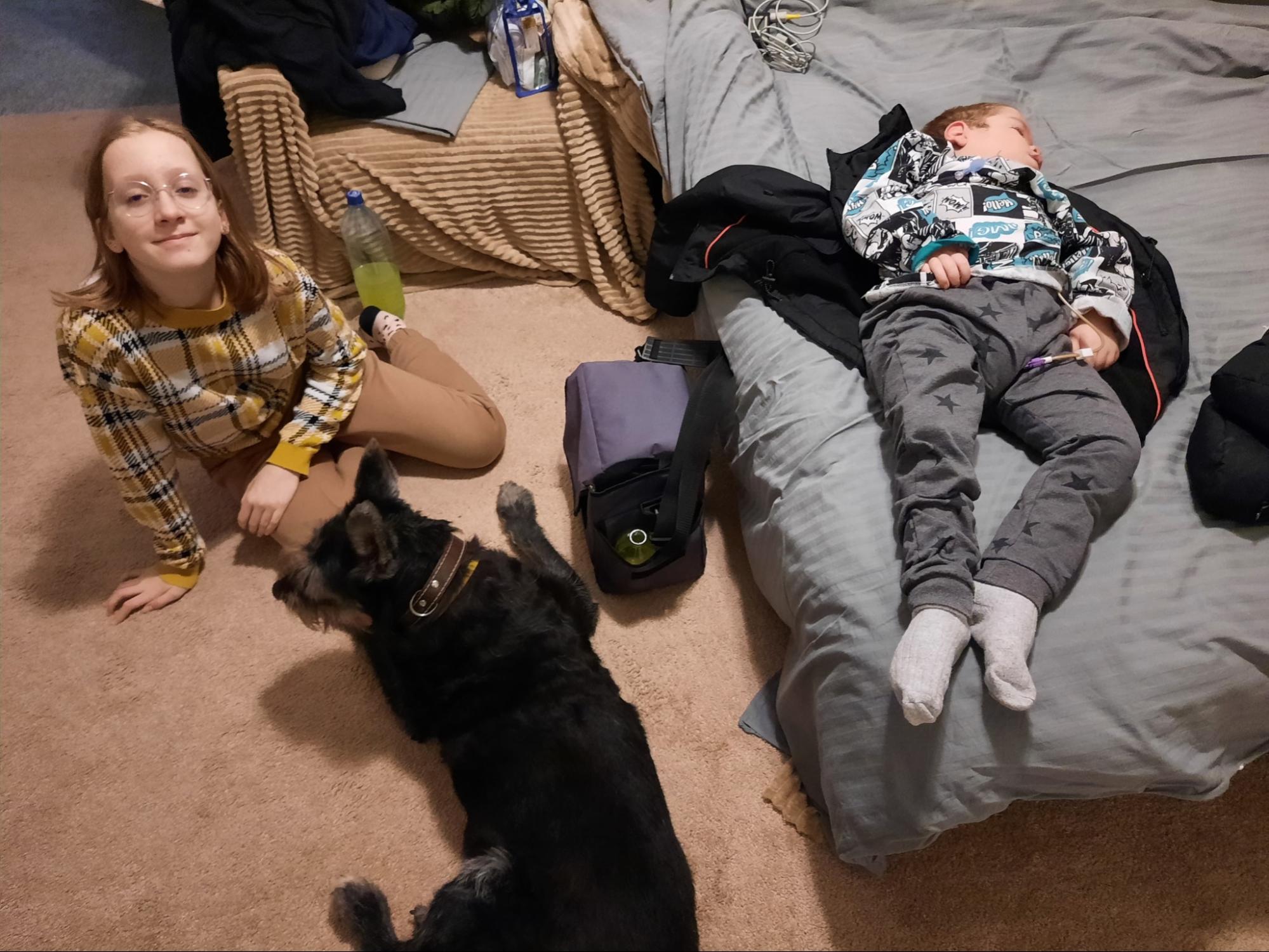
On the morning of February 24, Katia was going to take her eldest daughter, 12-year-old Sonia, to school: she was cooking dumplings and putting things in her shoulder bag until the news about the start of a full-scale war poured in. The family didn't immediately believe that it would last long.
"Katia, my greetings! My name is Hanna. The war has started, and I want Liosha to be comfortable. I know how dependent your child is on the electricity grid, so let me help with evacuation to Poland," said the unfamiliar voice of Hanna Poliak, a Ukrainian who has been living in Poland for several years. Hanna offered the Hlushenok family to go abroad.
Katia was surprised by such an offer and refused. She didn't want to plunge into the unknown—another country, where she has no one, with a seriously ill son. She was afraid that she would stay there alone without help.
"I must be 100 percent sure they are waiting for us because my child can get to the hospital on the way, having stopped breathing, or worse. He will not pass because of the war, but because I could not help him," says Katia.
The Hlushenok family—Katia, her husband, daughter, son, an old dog, and two cats—lived in Kyiv. Katia immediately understood that she wouldn't go down into any shelter during the shelling because she wouldn't be able to leave Liosha and her pets. Therefore, the woman talked seriously with her daughter Sonia: she should escape if something happened, and Katia would stay in the apartment until the end. Unfortunately, the family had no relatives in other regions where they could move to.
After a russian rocket hit a high-rise building on Lobanovskoho Street, Katia received a call from a friend who suggested that she move to the Kyiv region. The Hlushenok family went to a more peaceful place. But there were absolutely no conditions for Liosha. "My son can't hold his head up, can't sit. He needs a bath that fits a bath chair; I put him horizontally and washed him. Not bathing a child for weeks is not good. Wet wipes helped me. But I couldn't abuse my son," recalls Katia.
Evacuation and broken oxygen concentrator
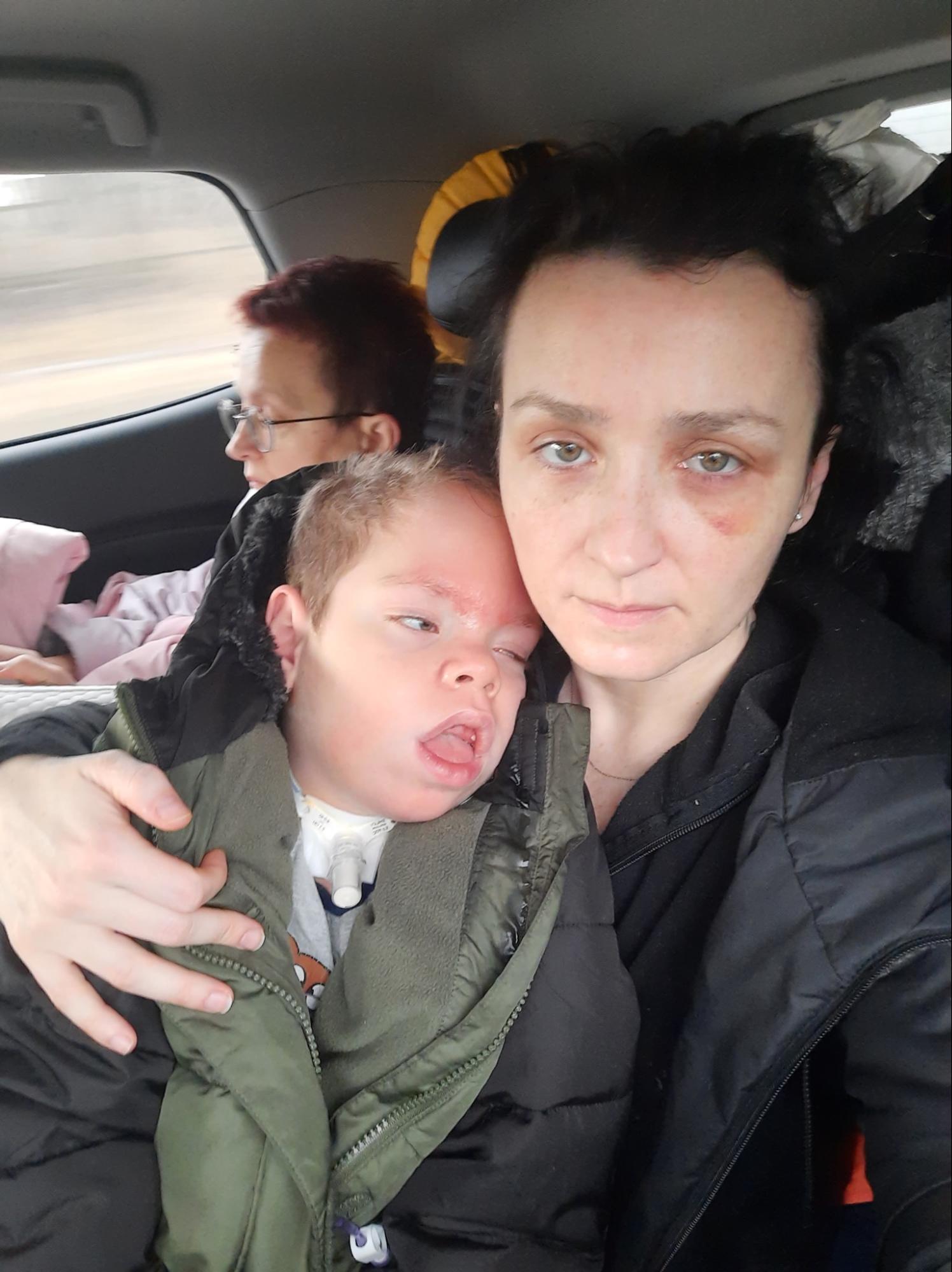
The family lived in the village for ten days. At this time, the pharmacies began to run out of things necessary for Liosha: prescription narcotic drugs, which the child must take every day, and even adhesive plasters.
"Katia, I'm still asking you: pack your things and go with Liosha, all the relatives, the dog, and the cats. We will wait for you here, and you will be under care in the hospice," Hanna Poliak called Katia for the second time in early March.
The family consulted and decided that they should go. Where should they have gotten medicine for his son if they stayed? They put a sign on their car saying, "Seriously ill child." They decided that the inscription "Child with a disability" could be ambiguously perceived because disabilities are different.
The road was challenging, Katia says. The traffic jams in front of the checkpoints stretched for dozens of kilometers, and no one wanted to let the Hlushenok family's car pass in front of the line.
"Everyone saved themselves as best they could. Our oxygen concentrator broke on the way, and I forgot the resuscitation bag so Liosha could breathe artificially in the car. Of course, there were no shops in traffic jams or outlets," says Katia. She was sitting in the back seat with her son. Whenever people didn't want to let them forward, she opened the window so they could see her child.
"It's cold, the trachea is open, and we open the window. I was sad and wild. But only then did I hear a confused 'Excuse me, drive through' from people. I would gladly stand in line with them if I had healthy children. I would listen to music, drink coffee, and play games."
The evacuation route went on for several days. All this time, Hanna Poliak from Poland asked how the trip was going. "Where are you going?" "Are you all right?" "What are the queues?" Katia recalls that the woman seemed to understand the family's difficulty with the trip, so she was always in touch. When the family got to Khmelnytskyi, they stopped at the apartment found by Hanna. They spent the night quietly there knitting socks for the defenders and baking bread, and in the morning, set off on their way.
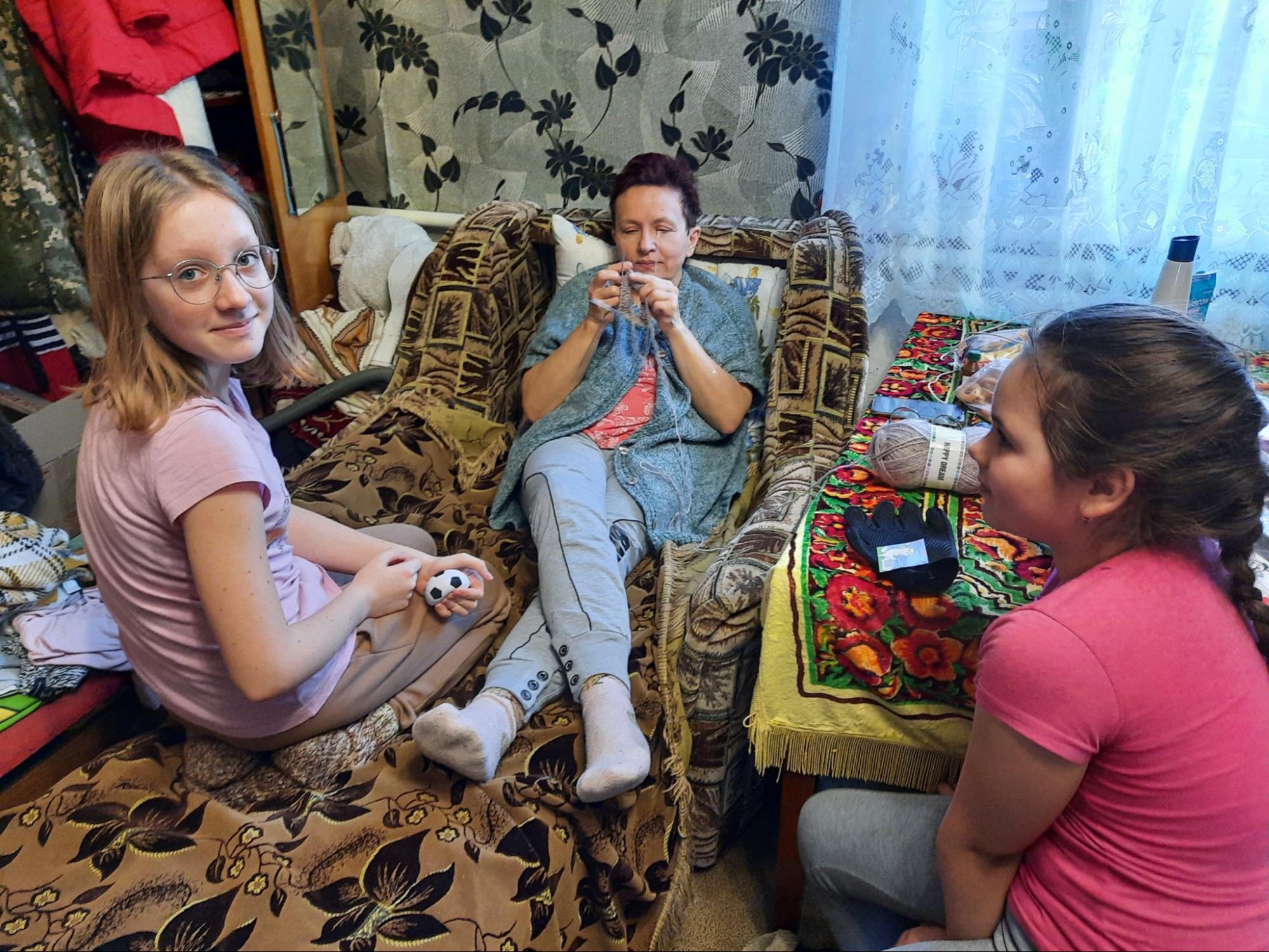
It became more manageable when we got to Lviv. The family was already expected there: the police and nuns accompanied the family to the border with Poland (Hanna organized this with her friends). Five hours passed, and the family ended up in another country. There they were met by a Polish nurse who provided all the necessary equipment for Liosha's life and checked his condition.
At first, the Hlushenok family settled in a small house near Krakow, then moved to a Polish family, who willingly accepted Ukrainians. Liosha still lives there with his family.
"We try to buy medicines ourselves. Hanna helps us with tracheostomies, probes, and napkins. Once a month, a Polish doctor comes to us and changes the tubes for free," says Katia.
Hanna Poliak adds that Liosha and several children are exceptions because they take specific medications. "The vast majority of Ukrainian children who use conditionally 'standard' epilepsy drugs in Ukraine are forced to look for them and order them abroad. In Poland, they have free and uninterrupted access to these medicines. Tracheostomy tubes are not only changed but also provided free of charge by hospices. For children and adults who don't eat because of a gastrostomy, all consumables and food are also available and accessible at the expense of the Polish national dietary consultation."
While in Poland, the family discovered that Liosha needed surgery: the battery in the vagus nerve implant had only 8 percent charge. The child was operated on for free in Katowice, and everything was covered by medical insurance. Katia says that if they had stayed in Kyiv, they would have had to announce the collection of money for the operation because they didn't have money.
Now the family is thinking about returning to the capital because it is hard for Katia to live for free in a family of Poles who rejects any financial assistance. The Hlushenok family also misses their native home very much.
"So many good people gathered around us. The Poles are very supportive, and so is Hanna, who does everything herself. She says, I'm not doing anything.' But you cannot measure that goodness, and I don't know where she finds the strength to help."
Pallium for Ukraine: how to evacuate seriously ill children from Ukraine?
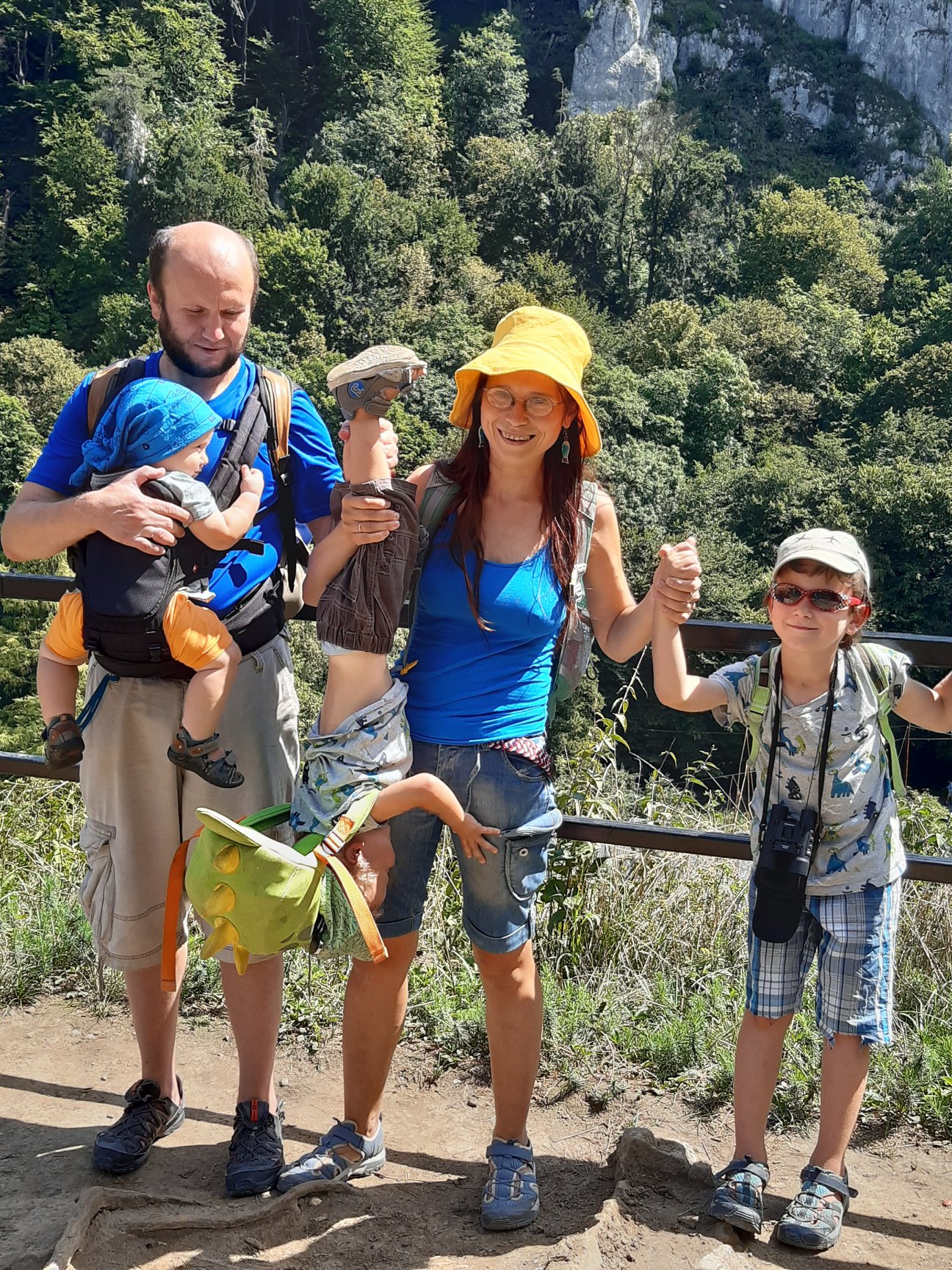
The Poliak family with two children moved to Poland in 2016. For a long time, the family didn't dare to leave Ukraine because, since 2014, they expected a large-scale mobilization. But the projects Hanna's programmer husband was engaged in left the country one by one. He decided to leave when there was no work because he had two small children.
While still in Ukraine, Hanna helped the seriously ill: "From my student years, when I studied in Kyiv, I tried to visit the children's oncology department as a volunteer, regularly supported various initiatives with money, and also participated in the Angel's Letters project, where you could become a pen friend for a palliative patient."
In Poland, the Poliak couple understood they could help remotely, Hanna says. "Some things are unavailable in Ukraine: tracheostomy tubes, certain filters or medicines. We were immersed in it because we sought ways to support children in Ukraine within family possibilities. Little by little, we bought something and sent it."
And then February 24 came. The first days of the full-scale invasion for the family blended into continuous day and night. Since that time, Hanna remembers one incident: she saw a post on social media from the director of a russian hospice, who, although she does not support the Putin regime, said that an agreement should be made with the enemy and seriously ill Ukrainian children should be sent to russia for treatment.
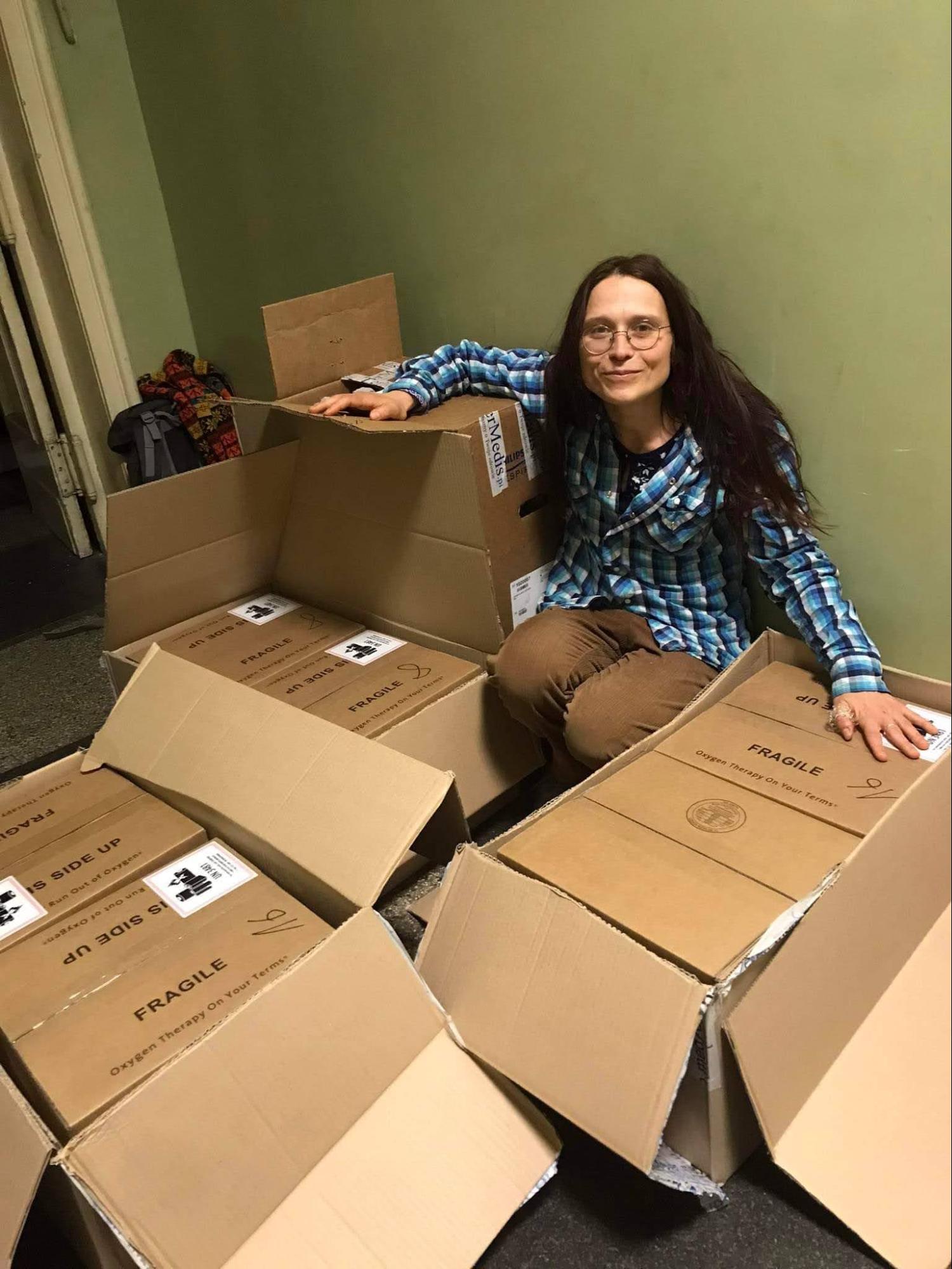
"Can you imagine that German troops bombed a city during the Second World War, and at the same time, good German humanitarians said: 'Let's send terminally ill children to Berlin for help.' At that time, I went crazy over this post," Hanna recalls.
Then the woman understood that seriously ill Ukrainian children needed urgent help: "I thought these children would be under a huge threat. You can't hide in a bomb shelter with them. For some, if the electricity goes out, it's the end of everything. Also, access to consumer goods has worsened a lot."
Hanna thought that we should organize an evacuation and receive these families in Poland, where they would be safe. It is how the Pallium for Ukraine initiative was born.
How does Pallium for Ukraine work?
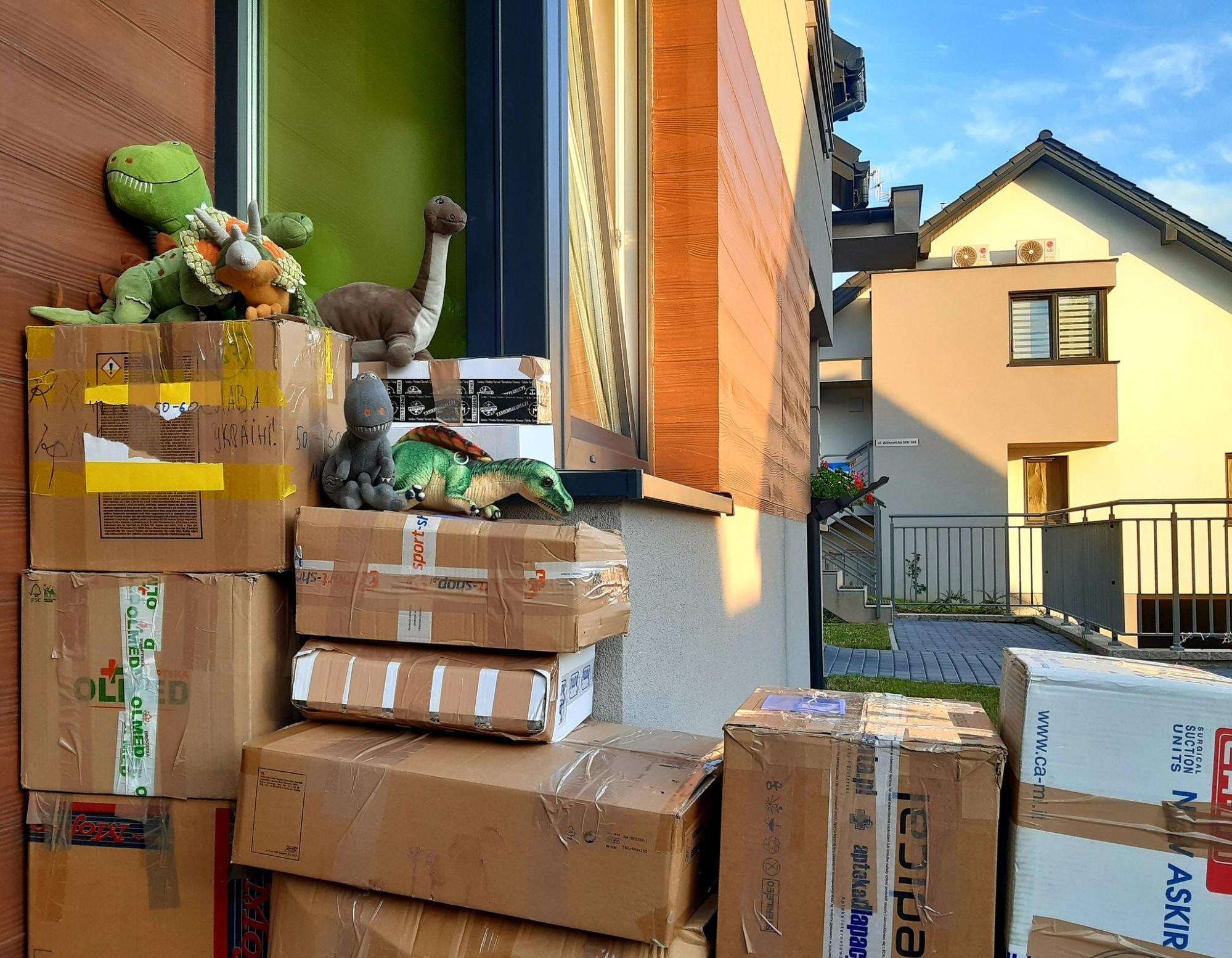
Hanna Poliak managed to attract many of her acquaintances who were well versed in the specifics of palliative care. Together, they gradually built a safe evacuation abroad because families with problematic children stood in line at the border for several days before that.
"Thanks to my former teachers, I established contact with the Polish health service. It looked like this: some child needed medical transport from the border. Even if it was a helicopter, we managed to organize everything. On the Ukrainian side, Lviv officials helped a lot. There was a coordinator from the city government who helped. When it came to a group of families or even a person going, they submitted information to the border that a severe patient would soon arrive. Preparations were made to escort them from both sides of the border."
During the evacuation from Ukraine, these families were placed in rented apartments (like the Hlushenok family with Liosha) or in those who agreed to accept them (even the Lviv Theological Seminary joined). At first, the flow of those who drove was large.
"Wild chaos reigned. People from Polish hospices call from one side of the border, and I'm on the phone from the other. Gradually, all this developed into a single process, but the flow was dormant," Hanna says.
It was possible to help approximately 70 families with evacuation in six months. Some of them remained in Poland, and others traveled through it in transit.
"They went to Germany or somewhere else. There was a case when a child with SMA and his family returned from the Netherlands. Because they realized that there is no such support as there could be in Poland. Some families return to Ukraine. Although we had them under the care of the hospice."
The organization found housing for all evacuated families. In particular, the Poland-Ukraine Institute foundation, founded by Ukrainian journalist Olha Menko, rented apartments for several families in Krakow. In addition, Hanna Poliak was engaged in the search and purchase of drugs and consumables for them. "Some people can buy a pulse oximeter once, while others must be regularly sent specialized food, various tubes, probes, and other things. That is, the scale of support for different patients is different."
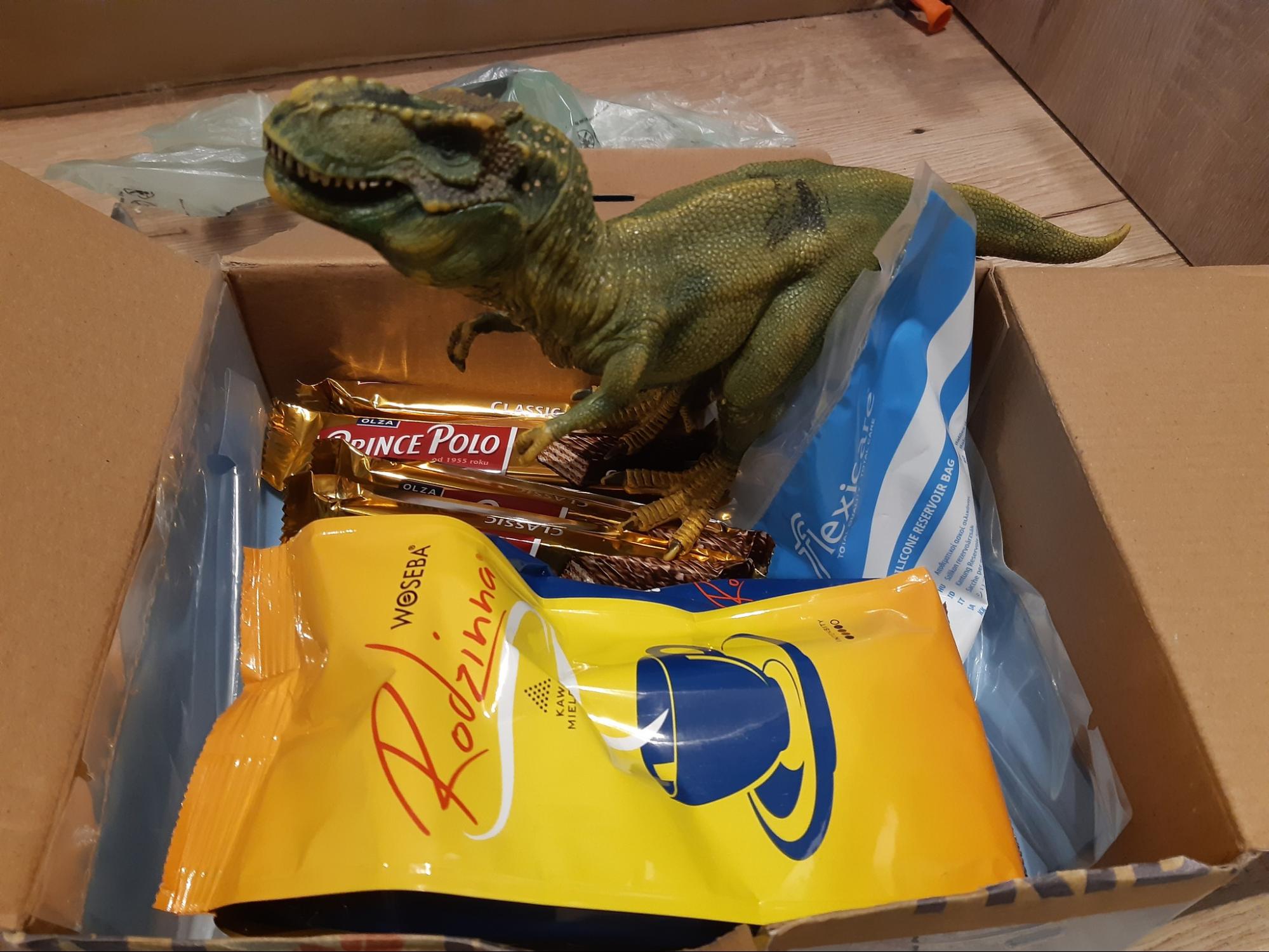
Hanna announced a fundraiser on the Pallium for Ukraine page to purchase everything necessary. The woman says many caring people joined—both Poles and Ukrainians—even large institutions. Hanna says that everything was possible thanks to them. She calls herself a small "detail" in this process:
"These families left their native home for a foreign country. They were under wild stress. This is the least I could do for them."
How to help Pallium for Ukraine?
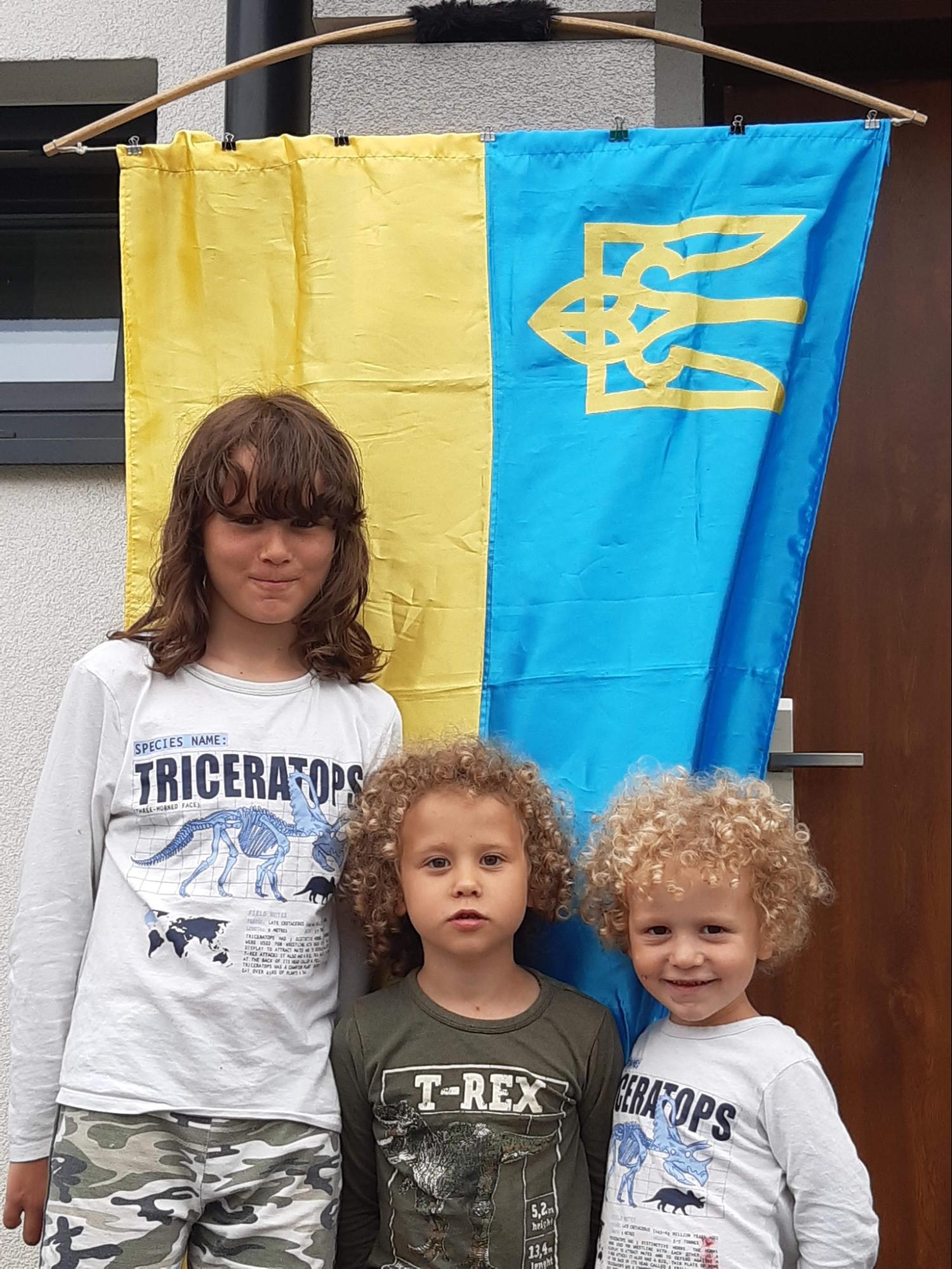
"Most of the work in the initiative rests on me," says Hanna, adding that her husband Artem is a good help with Pallium for Ukraine. Currently, the Poliak family has three children, four, six, and ten years old.
Parents sometimes tell them that people, especially children, can get sick and life can end prematurely. Hanna says they talk about such concepts as death and life at home, even more often than in an average Ukrainian family. But this, according to parents, is normal because often these topics are hidden from children.
There was one incident with the children that moved Hanna very much:
"The older son, watching me collect parcels for Ukrainian children, bought some chocolates with his pocket money. He saw that I always try to add something nice to the package of medicines and consumables. I was pleased that he had such a mental impulse."
Currently, Hanna doesn't know how her life is holding up with a large volume of work with seriously ill patients. She's constantly in chaotic motion, trying to keep up with everything. At home, it's a little easier; the husband's parents, who evacuated from Kharkiv's Pivnichna Saltivka district, help with household chores. But Pallium for Ukraine critically lacks people. Now the woman is preparing to register the initiative and is thinking about its charter. She's sure that this way, she can attract more volunteers.
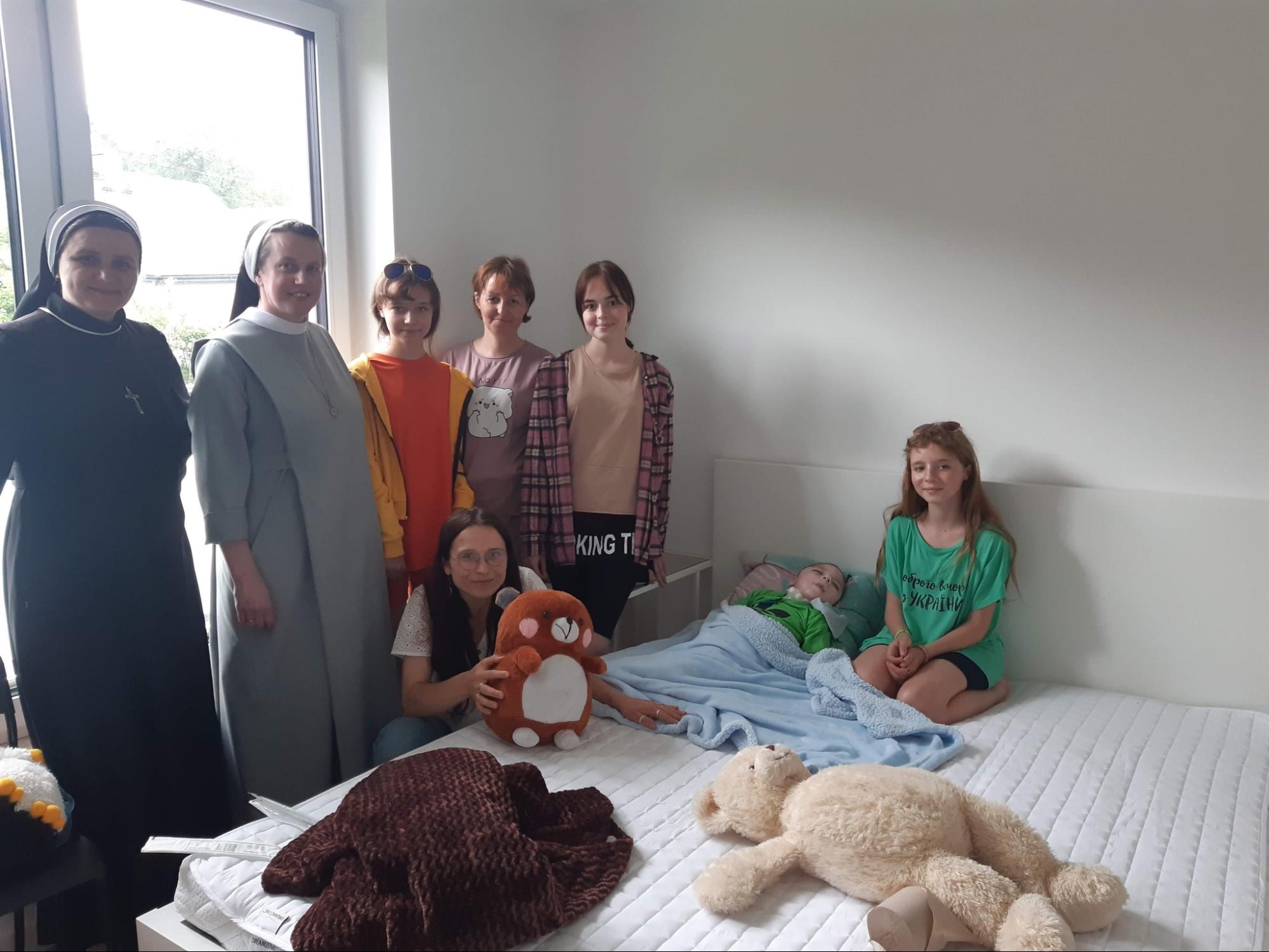
"One of my acquaintances might like to delve into it systematically. But most things require a good knowledge of Ukrainian and Polish. I was looking for an opportunity to finance certified translations to register the disability in Poland. I regularly need help with general communication. If the family doesn't speak Polish, the hospice staff don't understand it," Hanna says. Several female acquaintances help with this, but the need for translators remains.
Hanna is collecting money for supplies and medicines for evacuated children and those who remain in Ukraine. Also, part of these funds goes to pay for shipments. "The last shipment of my 22 boxes cost 1,800 hryvnias, which we could have used to buy rehabilitation equipment or catheters. Therefore, we would like someone to help us with the humanitarian shipment of parcels, if possible."
Everything purchased for palliative patients is stored at the Poliak family's home. Hanna laughs that her husband tolerates the transformation of their home into a warehouse. "We have a small apartment where seven people and two dogs live. But renting a separate space is an inadmissible expense for the initiative. I'm pretty sure I can't take money from donations because they go and have to go purely to consumables and when there is no other way out, to their delivery to addressees."
More donations are coming to the initiative than Hanna expected. But she dreams of finding benefactors who will donate systematically. So the woman will know that she always has some minimum amount of money.
Below we leave the details of the initiative. Remember that with every donation, you improve the lives of seriously ill Ukrainian children.
PayPal: [email protected]
Hryvnia card:
5168745119581798 (Zoia Ryzha is the mother of a child with a severe disability who came to Krakow after the war began. She finds the strength to help: she raises money on her hryvnia account and joins various organizational affairs of the initiative).
We are also adding a collection page on the Zrzutka platform:
Photos — from personal archives






